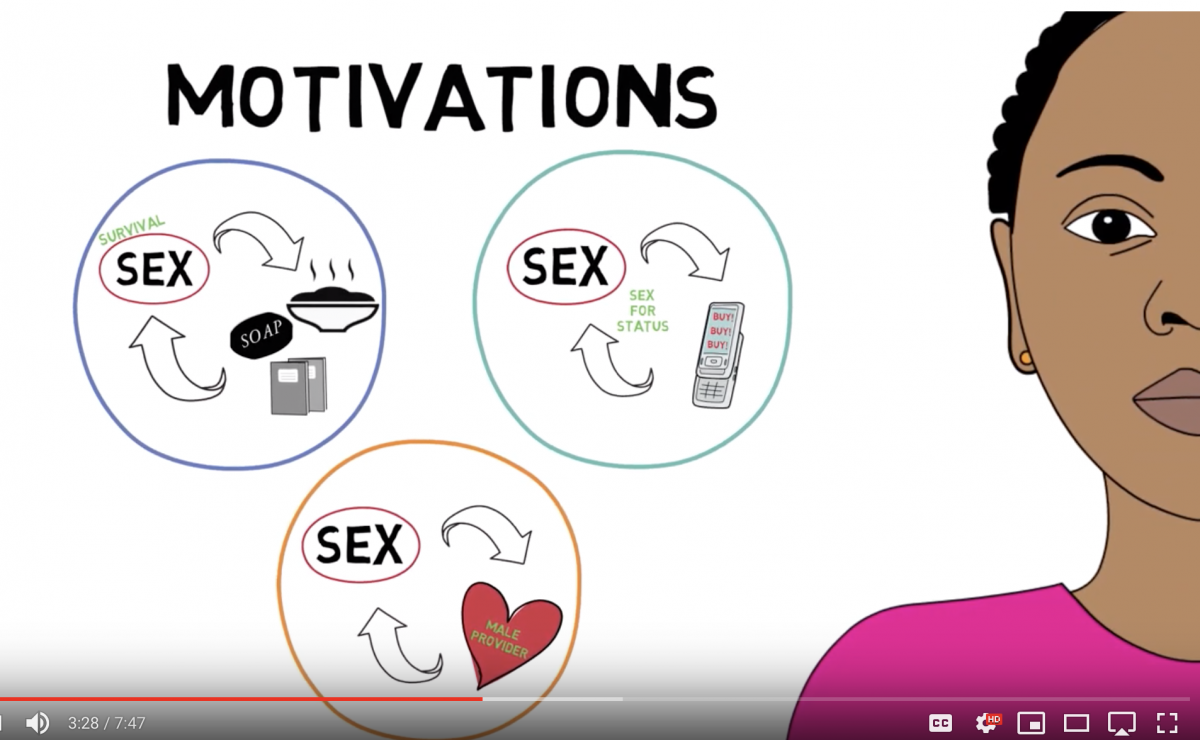What is the issue?
Adolescent girls and young women in sub-Saharan Africa (SSA) face the highest HIV risk of any group. A growing body of evidence demonstrates that engaging in transactional sex plays a significant role in increasing girls and young women’s vulnerability to HIV. Transactional sex relationships are non- commercial, non-marital sexual relationships motivated by the implicit assumption that sex is exchanged for material goods or other benefits.
Girls’ motivations for engaging in transactional sex are multiple, embedded in poverty, gender inequality, economic aspiration and romanticised gender roles.
While the research on this topic increases, so too does confusion on the meaning and measurement of this practice. This confusion holds implications for understanding trends in the practice over time and across contexts, as well as for how best to intervene.
STRIVE worked towards a better definition, conceptualization and measurement of transactional sex so that programmes aiming to reduce HIV risk and empower young women in sub-Saharan Africa are informed with by a clear definition of the practice and understanding of the multiple motivations for engaging in the practice.
What have we found?
- Transactional sex is linked to HIV in different ways
Transactional sex is, to varying degrees, associated with HIV risk behaviours such as multiple sexual partners and other determinants of HIV risk, including partner violence, abuse, alcohol consumption, and varying levels of condom use. - Transactional sex is a practice structured by gender inequality
Patriarchal belief systems uphold male authority in the community and direct gendered expectations and norms for the roles of women and men in families and relationships. Shared among men and women across the SSA region (and beyond) is the expectation that a man should provide for his partner. With this provision comes the expectation that women will offer sex in return. This male provider norm is a fundamental driver of transactional sexual relationships. - Three key motivations underlie the practice of transactional sex: sex for basic needs, sex for improved social status, and sex for material expressions of love
STRIVE research shows that there are three underlying and interrelated motivations that explain women’s participation in transactional sex relationships: to meet basic needs, gain social status or as an expression of love. Despite evidence pointing to varied and overlapping motivations for engaging in transactional sex, programming may implicitly assume that poverty and lack of agency are the main drivers of transactional sex, when in practise the motivations may be more multiple or complex.
What impact have we had?
As of 2015, the Demographic and Health Surveys (DHS) include improved questions to capture the practice of transactional sex for women and men. Similar questions are now included in the Violence against Children surveys (VACS), evaluations of the Transfer project and other cash transfer studies in South Africa and Tanzania and numerous individual studies including at least one surveillance site.
STRIVE work has also informed the design of programmes for adolescent girls and young women, finding traction and application among researchers, bilateral funders, UN agencies such as UNAIDS and UNICEF, intervention designers and influential media platforms.
Key resources
- Technical brief: Transactional sex and HIV risk: from analysis to action
- Video: Transactional sex: What it is and why it matters
- Journal publication: Improving the Measurement of Transaction sex in Sub-Saharan Africa
- Journal publication: Revisiting the understanding of “transactional sex” in sub-Saharan Africa: A review and synthesis of the literature
- Journal publication: Transactional sex and risk for HIV infection in Sub-Saharan Africa: a systematic review and meta-analysis
- Impact case study: Questions on transactional sex in the DHS
- Impact case study: Informing programming to reduce the HIV risk of transactional sex
